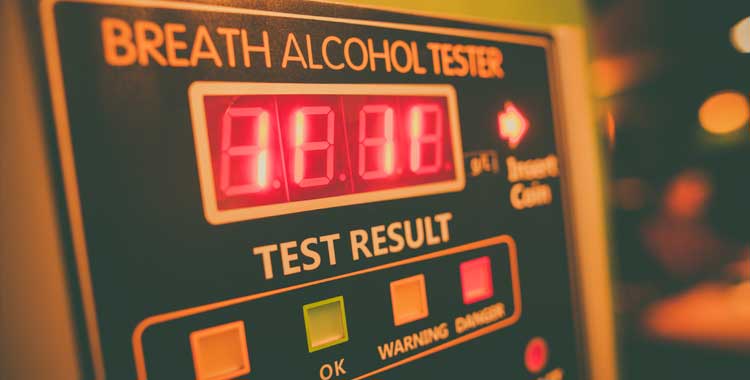What is the Legal Drinking Limit in New Mexico?
Any adult of legal drinking age should know the effects of alcohol on the body. Moreover, if you live in New Mexico, then you should also know the state’s legal drinking limits. If you do not know them or want to know more, then follow this brief guide to understanding the basics of these limits in New Mexico.
Legal drinking limit in New Mexico
There is not usually a legal limit for simply consuming alcohol: the limits relate to how alcohol affects your behavior. Alcohol has a number of effects on the human body. With a small amount of alcohol in your system, that might mean a slight feeling of warmth and a change in your mood. If you drink a lot, your body’s response will be much more pronounced and will probably include significantly impaired judgment, slowed thinking, a loss of muscle control, and impaired reaction times–all of which are going to negatively impact your ability to drive a motor vehicle.
Since the effect that alcohol has is related to how much alcohol is in your body, all states have so-called “legal limits” when it comes to drinking and driving. Although it is never safe to drive after drinking, past a certain point of consumption, it’s almost certain that you are too impaired to drive a motor vehicle safely. If a police officer determines that you are at or over the legal limit, you have broken the law.
If you are arrested on suspicion of driving under the influence (known as DWI in New Mexico), the police will determine whether you are at or above the legal limit by administering a chemical test to measure your blood alcohol concentration (BAC). The legal limit is based on your BAC, your age, and whether you were driving a commercial vehicle:
- If you are 21 years of age or older, the legal limit is a BAC of 0.08.
- If you are under the age of 21, the legal limit is a BAC of 0.02.
- If you are driving a commercial vehicle, the legal limit is a BAC of 0.04.
If your BAC is below the legal limit, you can still be charged with DWI if there is evidence that you are impaired by alcohol. It is a common misconception that as long as you are under the legal limit, you are safe to drive. Any amount of impairment is too much when it comes to drinking and driving, and arguing that you were below the legal limit will not hold up as a defense.
Blood alcohol concentration basics
It might seem simple just to calculate your own BAC before you get behind the wheel, and there are a number of resources available that can help you estimate. However, it is more difficult to determine BAC than you might think. BAC estimators often rely on your weight and the number of “standard drinks” you’ve consumed, but even determining whether you’ve had a standard drink can be difficult. For example, the alcohol content of beer varies drastically, depending on the brand and type of beer. Age, body type, and food consumption will also affect your BAC, making it harder to estimate accurately.
In New Mexico, a police officer will use either a breath or a blood test to measure your BAC. A breath test is a method that is more frequently used. BAC measures the amount of alcohol in your blood, but as the alcohol makes its way through your body, alcohol is released into the lungs in proportion to its concentration in your blood. Breathalyzers are used to analyze the alcohol content in the vapors that you exhale. In this way, the test can measure the amount of alcohol in your blood based on your breath.
An officer can also determine your BAC with a blood test. Whether a breath or a blood test is used depends on a variety of factors and is not necessarily tied to the reliability of the test: a BAC obtained by other methods can be used in court to support a DWI charge.
Consequences of drinking and driving
DWI laws in New Mexico are very strict, and if you’re arrested for DWI, you face the possibility of a criminal conviction. The first consequence you will face if you’re at or over the legal limit, though, is the immediate revocation of your driver’s license. In most cases, failing a breath or blood test, or refusing to take one, will result in revocation for up to a year.
If you are convicted of DWI, New Mexico statutes set out a number of penalties, some of which are mandatory. For a first-time conviction, the minimum sentence is 24 hours of community service, “DWI School,” an alcohol or drug abuse screening program, and the installation of an ignition interlock device on your car. Since DWI is a criminal offense, you may also face imprisonment for up to 90 days and a fine of up to $500. The penalties increase with each conviction, and multiple DWI convictions could lead to heavy fines, more than a year in prison, and the permanent loss of your driver’s license.
Contact
A DWI charge could change your life for the worse. Do not face it alone. Speak to an experienced attorney at Shaharazad McDowell Booth Law who can provide you with the legal representation you need. Call our office to schedule your initial consultation appointment today.


 Shaharazad McDowell Booth is a criminal, family, and personal injury law attorney who specializes in DWI cases.
Shaharazad McDowell Booth is a criminal, family, and personal injury law attorney who specializes in DWI cases. 


